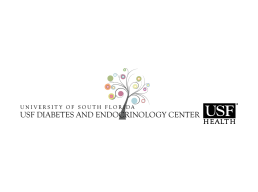
Led by Henry Rodriguez, MD, the TrialNet team at University of South Florida (USF) is dedicated to preventing type 1 diabetes and stopping disease progression by preserving insulin production before and after diagnosis.
Note: As a TrialNet affiliate, University of South Florida is regionally overseen by University of Florida. If you reach out to TrialNet, you may be contacted by staff from either institution.
Our Team

Henry Rodriguez, MD
Principal InvestigatorDr. Rodriguez is a highly regarded pediatric endocrinologist whose career has focused on the prevention and clinical management of type 1 diabetes. He has been a lead investigator in national and international collaborative type 1 diabetes (T1D) studies including the NIH-funded DPT-1, TrialNet, EDIC, and the Helmsley Charitable Trust-funded T1D Exchange, in addition to industry-partnered studies focused on expanding the number of FDA approved medications and technologies for management of children and adults with type 1 and type 2 diabetes. He currently directs the USF TrialNet Affiliate and the USF EDIC sites. Dr. Rodriguez has held many positions in the American Diabetes Association. He currently serves as chair of National Advocacy Committee, co-chair of the Safe at School Working Group, and a member of the Legal Advocacy Sub-Committee and Membership Advisory Group (past chair) and Florida Community Leadership Board. He also has previously served on the National Board and the Research Grant Review and Professional Practice Committees. He is also a longstanding supporter of diabetes camps in the US and abroad, currently serving as the immediate past Board President of Florida Diabetes Camps and he is a longtime faculty member for the Children with Diabetes Friends for Life Conference. His collaborative efforts also include working with others to improve technologies to better manage diabetes and the transition of young adults from pediatric to adult diabetes care providers. He is currently a member of the Pediatric Endocrine Society (PES) Public Policy Council and the PES liaison to the Diabetes Advocacy Alliance. Dr. Rodriguez’s passion is to improve the lives of those living with diabetes while pursing prevention and a cure.

Dorothy Shulman, MD

Sureka Bollepalli, MD

E. Verena Jorgensen, MD

Rachel Brownstein, MSN, ARNP-c, BC-ADM, LM, LMT

Juanita O'Brian, NRCMA
Clinical Research Coordinator





